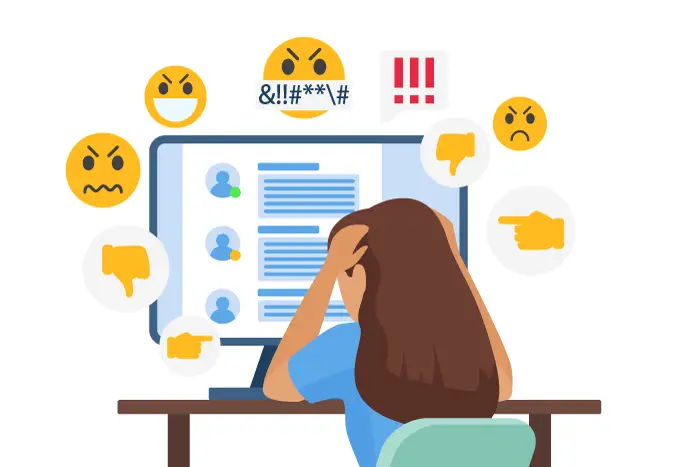Social media can be a powerful advertising medium. It can also be a great way to connect with business customers, network with other professionals, or simply vent and rant about politics and current events. It can also be a source of legal trouble — lawsuits involving defamation, intellectual property, or employment issues are just some of the ways you can step into a big mess. Businesses should tread lightly with their social media and those they give access to.
For businesses, it is vital to ensure that everyone who has access to your company’s social media accounts is aware of the potential legal issues and acts accordingly. Here are our top 5 ways one can fall into a legal trap when Twitter fingers go too far:
1. Intellectual property
How many ways can someone violate another’s intellectual property rights? The possibilities are infinite. Consider someone who re-purposes A joke from another user without attribution. Or if a company shares a meme that was ripped off from someone else. While the general public often takes a free-for-all attitude towards intellectual property on the Internet — engaging in activities as small as sharing a stolen joke to illegal file-sharing — companies must ensure that their employees act with more regard for the copyrights of others. After all, these companies have a lot more to lose than 14-year-olds downloading bootleg music.
2. Trademark
Social media is a very powerful channel for calling companies out for their successes and failures. While a private email or a support ticket may go ignored or unresolved for months, a public tweet by someone with a large following is a lot more likely to get results quickly — public shaming is incredibly effective.
And we all love to complain about our favorite sports teams and artists online.
While it is certainly possible with minor trademark infringement issues, such as making a reference to a popular brand or sports team, to dismiss the issue away as fair use, the cost you will pay to a lawyer to respond to the cease and desist letters and to make the fair use analysis far exceeds the value of a funny joke on Facebook — even if you win.
3. Employment law
Almost since the beginning of major social media sites, there have been stories of people getting fired for social media postings. Today, with the vast polarization between sides when it comes to politics, COVID-19 issues, and other current events, everyone feels like they have to have a voice online and that they represent the side of righteousness. Anyone who disagrees with them must be an idiot and should be ridiculed.
Not only is this attitude unhealthy for the state of general discourse, but when it spills over into work accounts or when people do especially stupid things like posting videos of themselves violating the law, it can cause major headaches for employers and businesses. Many viral humiliations, such as racist Karens, lead to people discovering the identities of the people in the videos and pressuring the companies to fire that person. We’ve also heard stories of people who participated in the capital insurrection facing employment consequences, as well as criminal charges.
Anyone who aspires to a professional career should be smarter than to post anything controversial online. Save your opinions for dinner discussions or debates with friends and family in private messages. Companies need to maintain this same standard, if not an even more heightened standard, And if an employee is involved in something that will embarrass the company or that is illegal, consider whether you can cut ties with that employee without facing legal action.
4. Defamation
Defamation might be the easiest way to fall into trouble online. Again, in a very opinionated culture such as the one that exists on Twitter, everyone has an opinion. Hot takes are the norm. In the constant quest for attention, people increasingly post more and more severe opinions. Tendencies to exaggerate or to post downright falsehoods are a natural outgrowth of this culture. A quick hot-headed tweet can lead to years of litigation. And again, even if you win, you still lose money on legal fees.
Obviously, for businesses, employees need to be trained about the differences between defamation and truth-telling.In fact, it might just be better advice for businesses to follow the old adage that if they don’t have something nice to post, don’t post at all.
5. Revealing Corporate Information and Trade Secrets
It can be very tempting, when you absolutely kill it at work, to brag online. After all, not only will it enhance your reputation amongst people in similar careers in other companies, but it could lead to your next big career break. However, that temptation needs to be tempered by respect for the private data of your company. For example, a marketing guru might want to post statistics on how they grew lead volume at a company. But, if they post raw numbers or discuss the methods they used to generate those leads, will they be tipping off the competition and erasing any edge they have created for their company? Will they be giving away trade secrets or confidential numbers?
It is absolutely appropriate and a best practice to teach your employees about this concern. If they really want to brag about something they did at work, then great. People should be recognized for their successes. But perhaps they can be taught to obscure confidential data using percentages, or less specific data, or maybe they should run it by an internal team before posting it online.
If all of the above legal concerns have you sweating and considering locking down your social media accounts, or closing them all together, you are not alone. But, much of this can be addressed or minimized by training your staff on best practices for all the above concerns.






